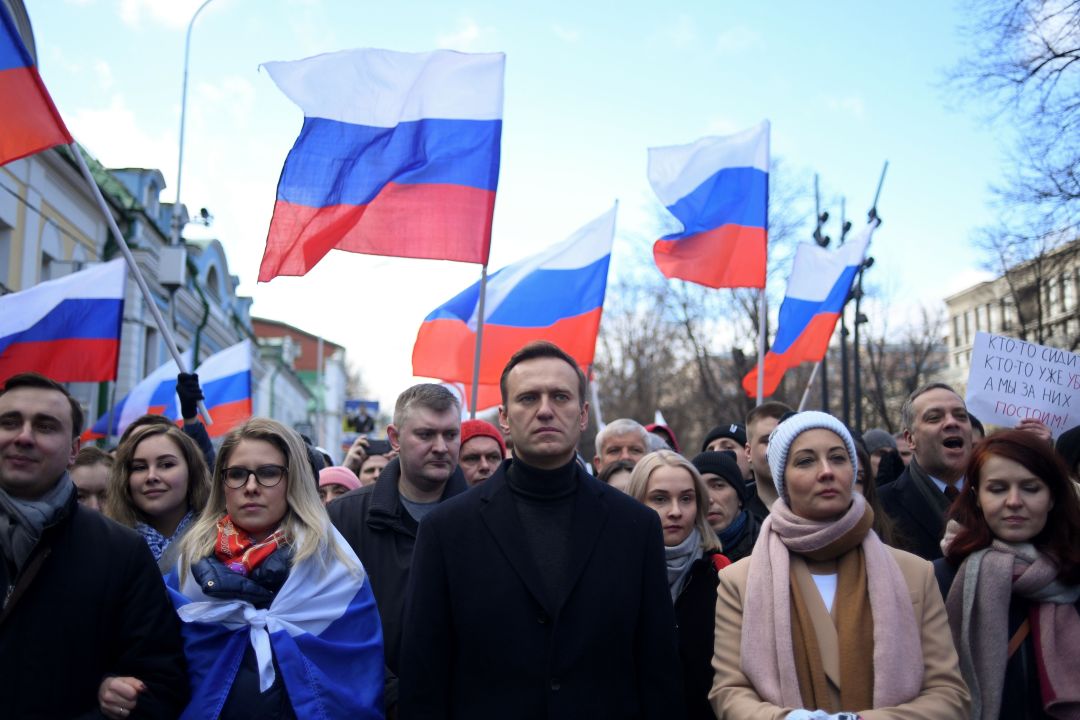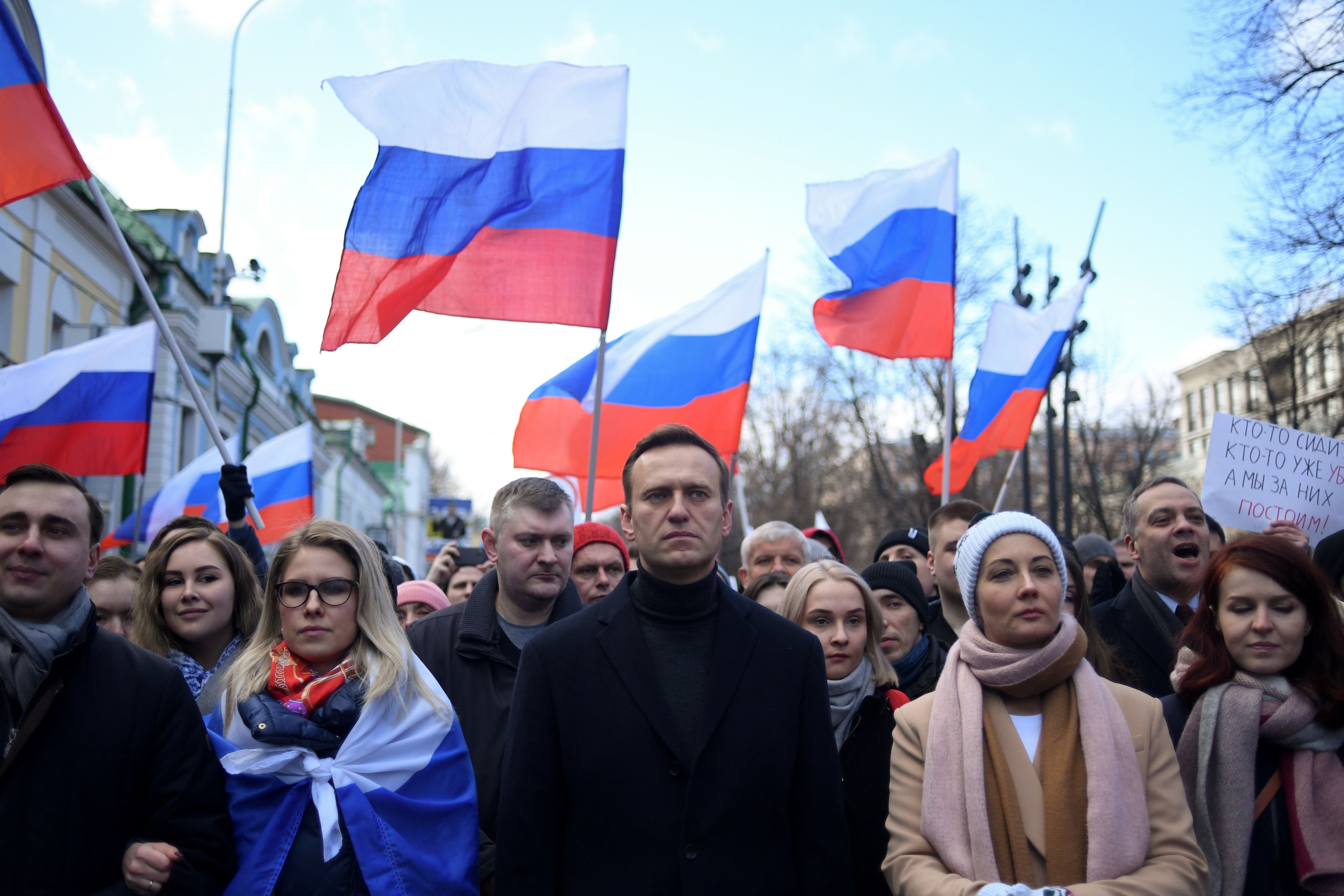Russian opposition leader and anti-corruption campaigner Alexei Navalny is, as of writing, fighting for his life, hooked to a ventilator in a hospital in Omsk. He was flying back to Moscow from Tomsk when he fell suddenly ill, and many assume poison. Think the government did it? Of course not: according to the Kremlin’s lead propagandist, it was us.
Navalny’s efforts to establish a nation-wide political party in all but name – every time he tries to register a party, the Kremlin finds a way to disallow it – and his glossy exposés of elite corruption presumably struck a chord at a time when the city of Khabarovsk is still protesting the arrest of its elected governor and Belarus offers an implicit commercial for people power.
He himself has been arrested time and again, seen his brother imprisoned as a virtual hostage, been sprayed with an antiseptic dye that almost cost him an eye, and even challenged to a duel by the thuggish head of Putin’s National Guard. It also may not have been the first time he was poisoned: last year, he fell sick after being arrested. The official report was an allergic reaction.
There is a deep conviction in Russia that Perfidious Albion is its most cunning and devious foe
The Kremlin’s fascination with poison dates back decades. It can be subtle, it can be horrifyingly obvious. Above all, it is deniable – it can be explained away, or blamed on someone else.
In this case, Dmitri Kiselev, head of the official government-owned news agency Rossiya Segodnya and a commentator of toxic but influential standing, deployed the usual line – much seen after the attempt to poison Sergei Skripal in Salisbury in 2018 – that it couldn’t possibly be the Kremlin because that was just too obvious.
‘If Navalny really was poisoned,’ he continued, ‘it was the Americans or the English. Just another dirty trick. That’s their style. They need Navalny poisoned.’
Quite how the CIA or MI6 would have inserted poison into a cup of tea at an airport café in Tomsk – the only thing Navalny ate or drank that morning – is left unanswered. The central conceit, after all, is that Russia’s enemies are so cunning, so powerful, that the country must forever be on guard.
It is understandable, perhaps, why the CIA is always the villain of these dramas. But why the Brits?
There is a deep conviction in Russia, one that goes back over a century, that Perfidious Albion is its most cunning and devious foe. Lenin called it ‘our greatest enemy’. Stalin was sure that Churchill – apparently ‘the kind of man who will pick your pocket for a kopek if you don’t watch him’ – was forever trying to get one over on him. Soviet leader Leonid Brezhnev reportedly once said that Britain was ‘an old lion, but one that got old by being more crafty’ than the rest of the pride.
More recently, the British have acquired a status as the smarter, more subtle American sidekick. The kind of hawkish Moscow official or think-tanker who takes for granted that the Ukrainian ‘Euromaidan’ revolution of 2013-14 was actually engineered by the CIA, will often concede that MI6 probably came up with the idea. Langley has the muscle, Vauxhall Cross the brains.
The genesis for this image is a complex one. It is likely rooted in 19th century Anglo-Russian rivalry in both the ‘Great Game’ for Afghanistan and then India, and also over the Ottoman Empire and the Middle East. As the bookends of Europe, one a great land empire, the other a naval one, Britain and Russia were powerful enough to be in each other’s thoughts, yet distant enough to remain exotic. The literature to which Russians were exposed in Soviet times, from Sherlock Holmes to, believe it or not, Agatha Christie, as well as the juxtaposition of coldly mannered English dzhentlmeny with warm-blooded Russians, all contributed to this image of the British as calculating, arrogant and aloof.
Of course, there are more stereotypes – including the English football khuligany – and they are all coming under pressure in the age of globalisation. Nonetheless, in political and security circles, I have continued to be struck by the persistent belief that Britain is Russia’s foe, and a uniquely sly and subtle one at that.
At a time when it can seem quite hard to feel, as Boris Johnson might put it, ‘world-beating’, when Washington seems largely to be ignoring us, and Brussels hectoring us, it is strangely reassuring to be taken so seriously.








Comments